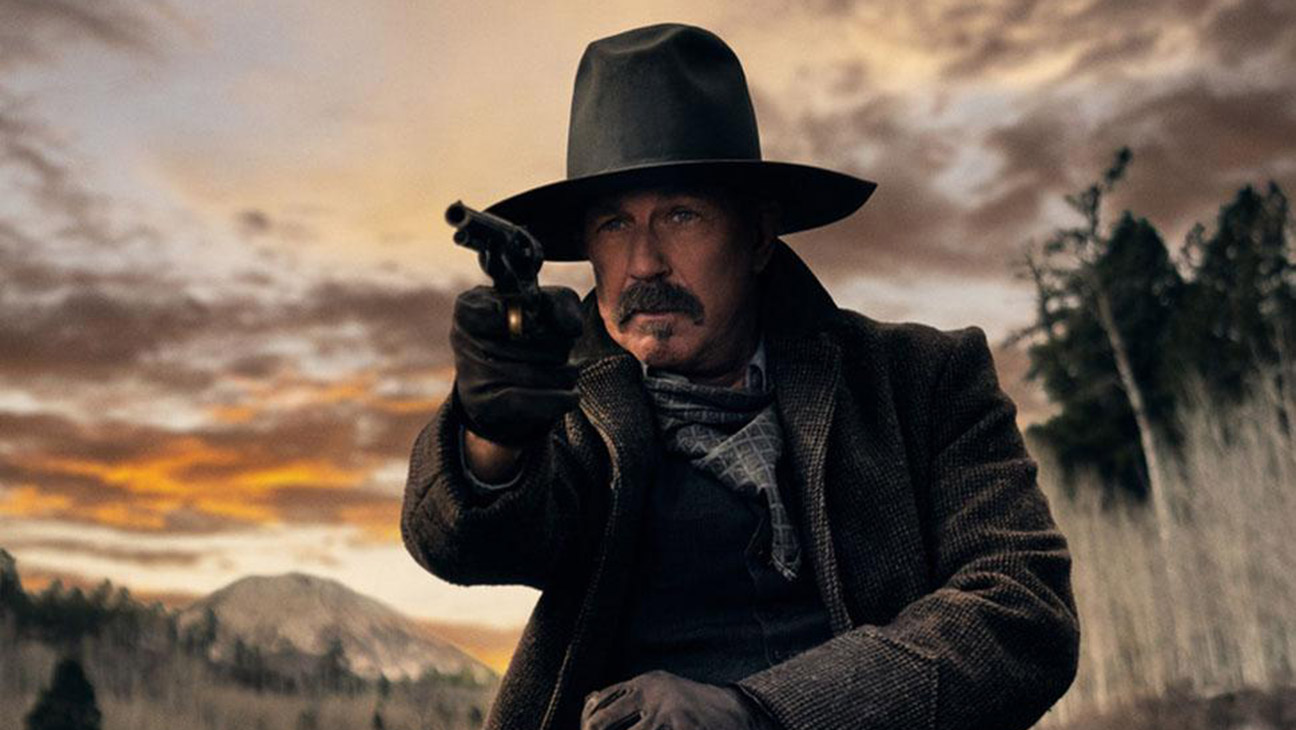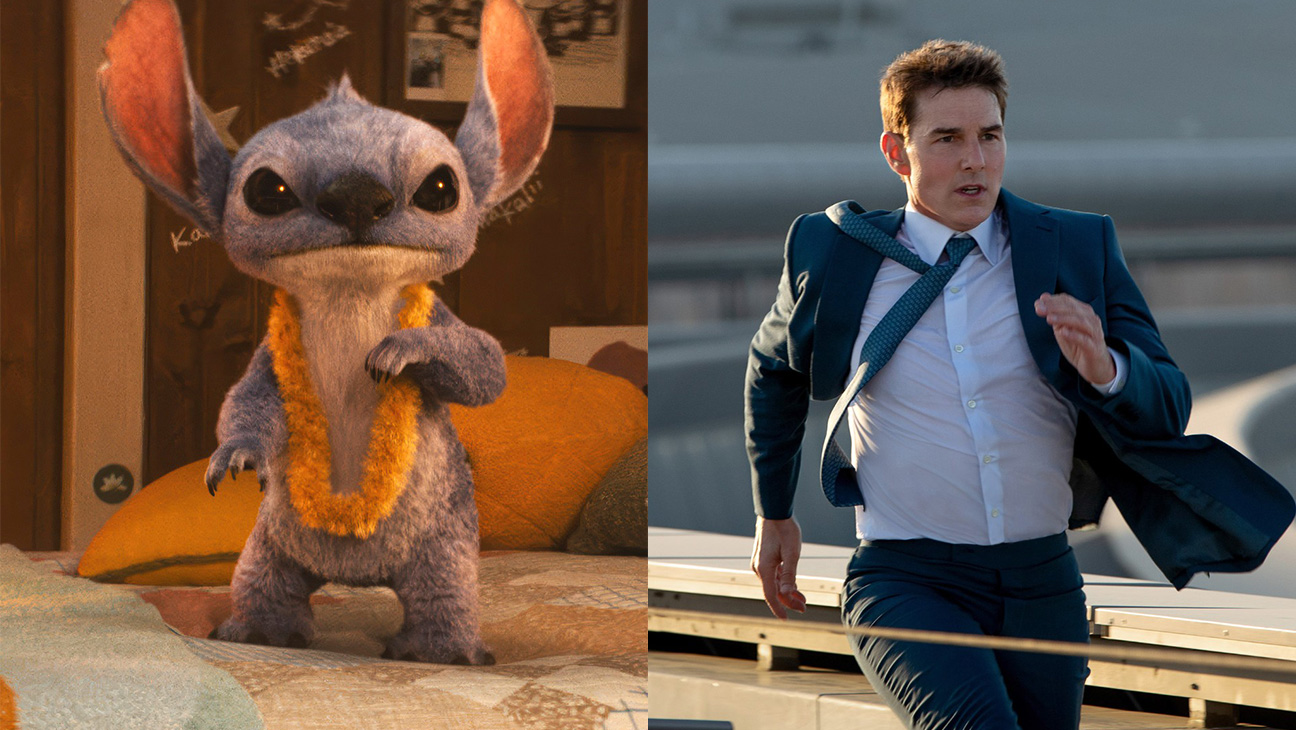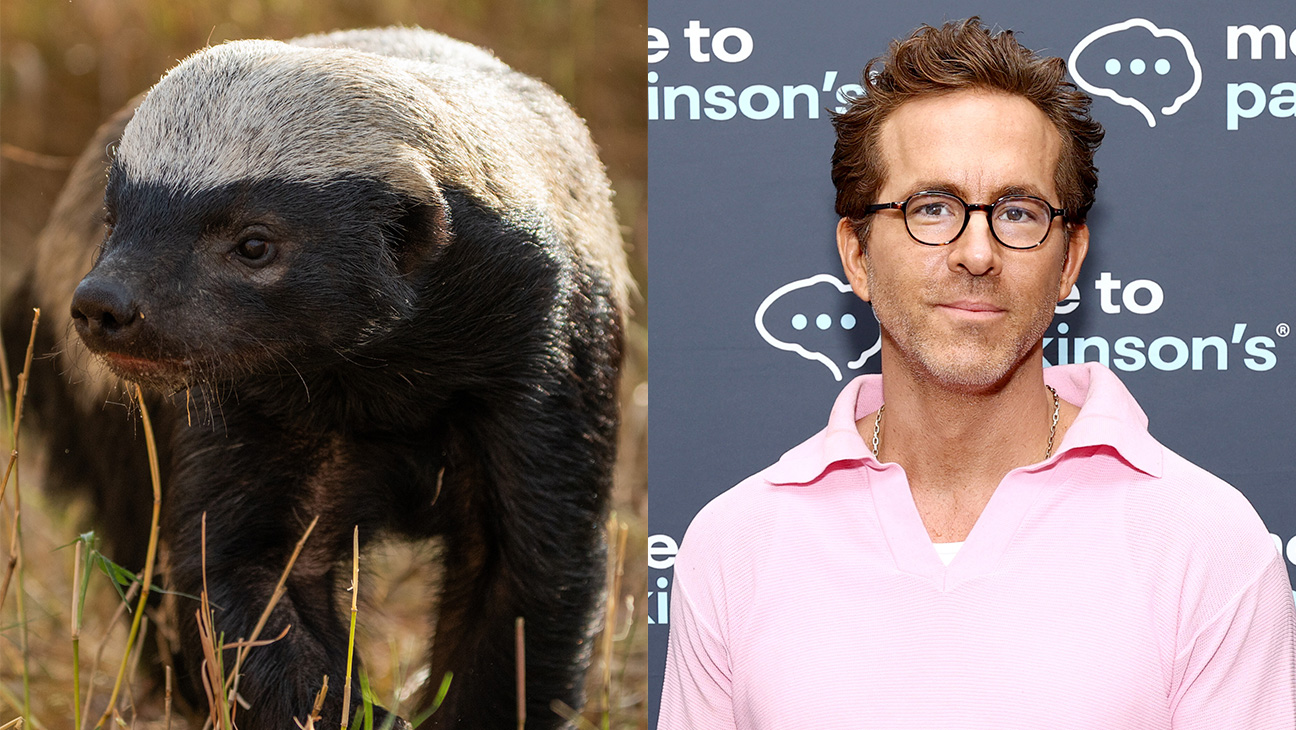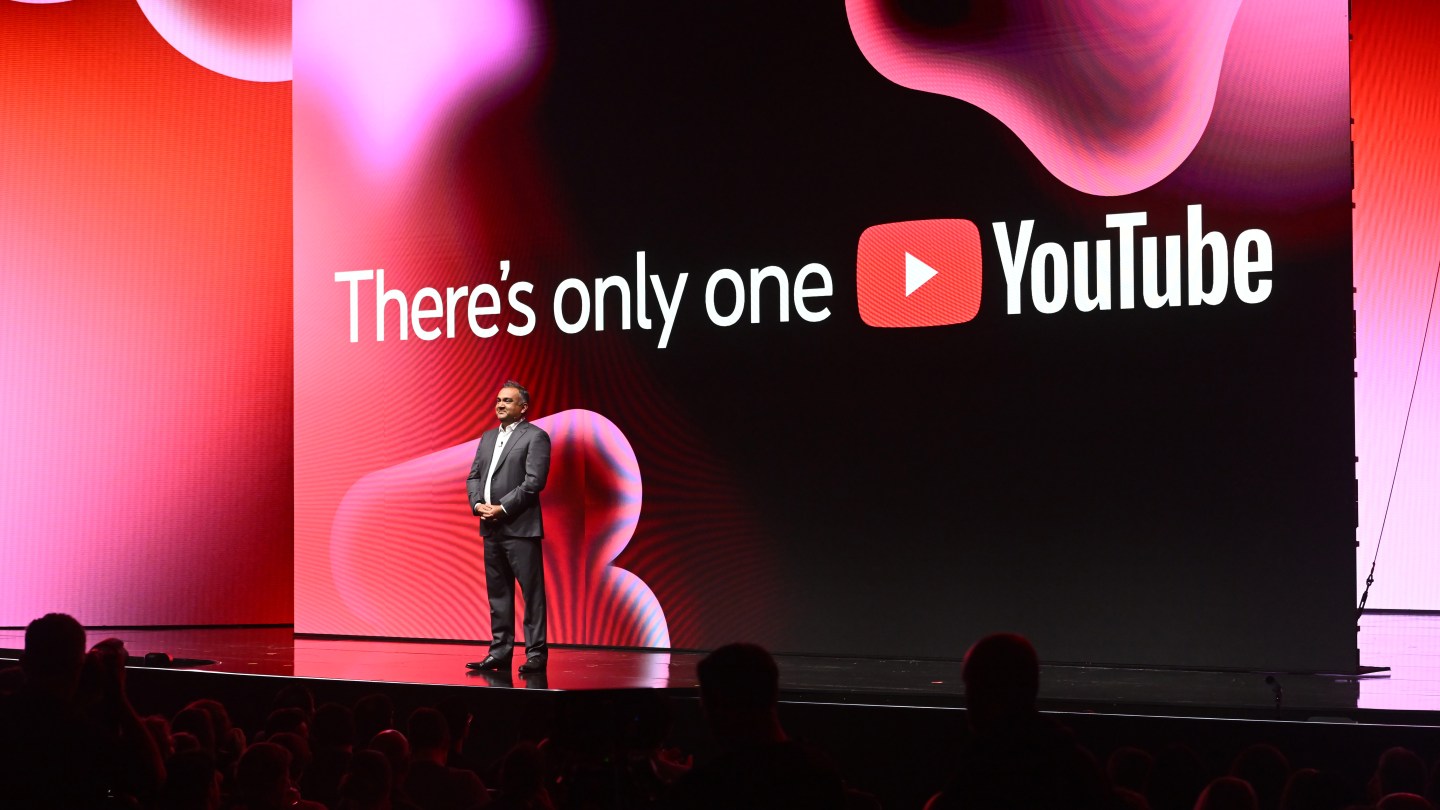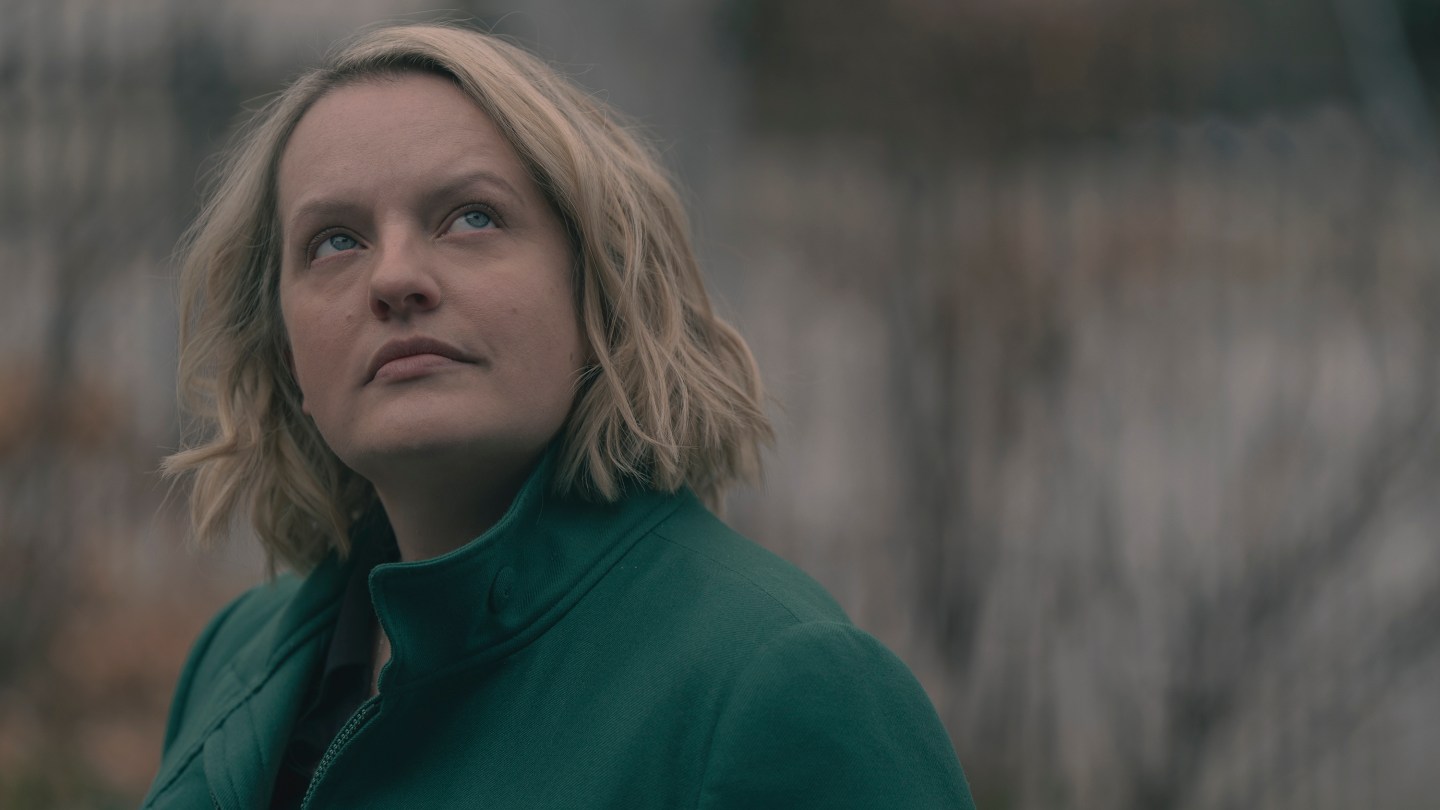
[This story contains MAJOR spoilers from The Handmaid’s Tale series finale, titled “The Handmaid’s Tale.”]
The Handmaid’s Tale‘s creator Bruce Miller always knew how he was going to end the series. A key location detail changed along the way and he didn’t know how many seasons it would take to get there, or that Margaret Atwood would write a sequel novel in 2019. But he knew that when the show reached its ending, June’s story would circle back to where it began, but with new perspective.
“This is definitely not a story where you get what you want most of the time — or where June gets what she wants. It’s a story about how to live with the things you can’t get,” Miller explains to The Hollywood Reporter about the series finale.
The 2017 pilot of the Emmy-winning Hulu series had introduced viewers to Elisabeth Moss as June, the woman readers first met as Offred in Atwood’s best-selling 1985 novel of the same name. The pilot flashed back to June being separated from her husband Luke (O-T Fagbenle) and daughter Hannah (Jordana Blake) before reintroducing her as a handmaid, wearing a red cloak and white bonnet, while sitting in a windowsill in the home of Gilead Commander Fred (Joseph Fiennes) and his wife, Serena Waterford (Yvonne Strahovski).
Viewers who listened carefully could hear a click before June then said in voiceover: “A chair. A table. A lamp. There’s a window with white curtains, and the glass is shatterproof, but it isn’t running away they’re afraid of. A handmaid wouldn’t get far. … My name is Offred. I had another name, but it’s forbidden now. So many things are forbidden now.”
Now with the series finale that began streaming on Tuesday, viewers understand that clicking sound was a tape recorder and that voiceover was a present-day June. In the series ender, aptly titled “The Handmaid’s Tale” and written by Miller and directed by Moss, June is again sitting in that Waterford windowsill after revisiting the remains of the Boston home that burnt down midway through the series. Except now, Gilead’s occupation is over and Boston is free, and June is beginning to record the tale we’ve been watching for six seasons.
But this means that this tale has reached its end, and June (and viewers) didn’t get the reunion they’d been hoping for since the start: The dystopian series doesn’t end with June reuniting with her oldest daughter, Hannah. It ends with June continuing to fight for her.
“When [Atwood’s sequel novel] The Testaments comes out, you know certain things — you know that June’s not dying, you know [her daughter] Hannah is still in Gilead. There’s a whole other book about that story,” Miller explains of how the series finale sets TV’s Gilead universe on its next course; Miller, also creator of The Testaments, began working on that adaptation ahead of the final season, with Eric Tuchman and Yahlin Chang showrunning season six. “You appreciate the end of the novel and why leaving you loose ends is still satisfying because you feel like, ‘This woman is still around. She made it this far,’” he adds. “If she didn’t make it any further, that’s okay, but what a story of her making it this far. It is the story of women through history.”
The finale does — praise fucking be! — deliver the highly emotional mother-daughter reunion between Janine (Madeline Brewer) and Charlotte, facilitated by a revolutionized Aunt Lydia (Ann Dowd) with Naomi’s (Ever Carradine) consent; while Serena is handed a fate left open to interpretation, as she is once again a refugee without a home for her and son Noah. After the deadly penultimate episode with the High Commander deaths of Nick (Max Minghella), Lawrence (Bradley Whitford) and Wharton (Josh Charles), the finale updated viewers that Gilead will continue to fall across the once-United States and that June will be among the resistance, fighting undercover until she gets Hannah out. Luke vows to do the same.
Following up on The Hollywood Reporter‘s oral history on the blazing success of the series and how it will launch The Testaments, THR spoke with Miller and Moss in separate conversations edited below about how they delivered a satisfactory yet realistic ending to the beloved, timely saga while also setting up the sequel series, which is currently in production. In that near future, Aunt Lydia is the starring character and Chase Infiniti plays Agnes, which we know is the Gilead name given to Hannah, June’s daughter.
***
Bruce, you recently told me that this is a story about living with what people can’t get and how they survive. Before Margaret Atwood came to you with her plan to write sequel novel The Testaments, were you planning on reuniting June (Moss) with daughter Hannah? Or did that seem like too much of a neat ending for this world?
BRUCE MILLER It felt like it was tying it too much in a bow. Given where we started with June, that seemed like a whole other section of her life. This show was about June and her daughter and her husband and how she lost everything, and how she has gradually been pulling a lot of that back together. It’s The Handmaid’s Tale, not Hannah’s Tale. It’s focused on June’s journey from handmaidness to freedom. The question of how she rebuilds her family felt like a whole other step, which we’re seeing is a lot more complicated than just, “Let’s all go to Alaska.”
We spent the season with June at first thinking, “I can dust off my hands and say, ‘I’m done.’” [If she stayed in Alaska with her mom and daughter Holly], that’s what that would look like: The neat ending. But it didn’t end up like that. June threw herself back in — she couldn’t walk away from her daughter, Hannah. I think they say it in the book: There’s plenty of stories from people who get their kids back. Those are the one-in-a-million stories we always tell. I want to tell the story about the 999,000 people who don’t get their kids back. They have to go through life and live, and it’s not easy. June is a good example of someone who doesn’t ever take the easy way out, but this is as hard as things get in the world and you see what that does to somebody.
When Margaret said, “I’m writing The Testaments and this may influence what you do on The Handmaid’s Tale,” she told me that she gave you a very small no-kill list: Aunt Lydia, and June’s two daughters, Hannah and Nichole/Holly.
MILLER Yes, a very small one. Lydia is a fucking cat. She has 900 lives, which is exactly how those people survived in those kind of regimes by being very good at stepping slightly out of the way when the shit starts to fall. Ann [Dowd] has taken that character in so many different directions and shown us doors to parts of her past and personality that we haven’t opened yet. Aunt Lydia [by the end of The Handmaid’s Tale] is just starting to realize that maybe Gilead was lying to her, and maybe it isn’t just her “special girls” who deserve to be free. Ann has built that slowly, carefully in a believable way over time. Margaret and her are wonderful friends. It’s a great pleasure to be able to continue that character [in The Testaments]. If you look at what happened just in this last season — Lydia’s at the end of a rope and then she’s back already in power by the end, which is totally her!
Margaret came to me as soon as she was having the inkling [of writing The Testaments], so it was very early for me to get the information. She let me know as the creator of the world that things might be shifting a little under my feet. The show went past the book, The Handmaid’s Tale. So I was trying to come up with an ending that fit well and certainly I was playing with a lot of the things that she talked about doing in The Testaments. But this is called The Handmaid’s Tale. It’s not June’s Tale. It’s her time as a handmaid. And at the end, the final episode is that she’s not a handmaid anymore in any way, shape or form. She’s nobody’s handmaid: She’s Onjune.
ELISABETH MOSS I didn’t have the task of writing [the ending], but I understand and I’m aware that that was the biggest challenge: The Testaments has Hannah not get out. That was definitely something we would have played with for the end of Handmaid’s; June maybe getting her out. But we had to move towards the sequel that had been written. Now, I don’t think that was a bad thing. But was it the thing that was probably most present? Yeah, I would say so.
Lizzie [Moss goes by “Lizzie”], did you know after season three that because of The Testaments [which released in 2019] that this show was going to end differently?
MOSS It was before I read it, because I spoke to Bruce about it. Then I read it and it was definitely like, “So that won’t be our ending.”
Bruce, you have told me you always knew how the series would end. So, had you always imagined the final scene would be June saying those words that began her tale? Was that in your initial pitch for how you wanted to adapt the series?
MILLER Yes, it was in my pitch because it’s really the story of the book. It was how you think about her as a character from the beginning. What is that voiceover? Where’s it coming from? From the beginning, I was thinking, “So what we’re watching is this box of tapes that someone found, just dramatized.” But it’s this box of her story, her tale of being a handmaid. So I said that what I really wanted to do was that when you get to the end, you feel like you understood what you just saw and what it was as a full piece. I’m hoping that it felt satisfying as an ending for this story.
MOSS What I connected to with June at the beginning was the same thing I connected with at the very end. She has this quality of wanting to survive, not only as herself, but to create a better future specifically her children but also for the next generation. That is her goal in life. I saw that in episode one, in that first script. I remember calling my mom and telling her that. And it’s the same thing in the very last scene.
For whatever reason, I’m not a stranger to doing work that somehow ends up becoming a part of the zeitgeist or becoming relevant in a very present way. Those aren’t choices that I’m necessarily making on purpose. I’ve just gravitated towards material that is, for me, personal. This story was personal and my job is to tell the personal side of things, the human side of things. When it then goes out into the world and becomes political or something on such a larger scale, I’m grateful and moved by that.

June (Elisabeth Moss, who directed the finale) returns to the Waterford house for the final scene in the series. The Boston home burned down at the end of season three.
Disney/Steve Wilkie
Lizzie, when we spoke at the beginning of the final season, you said this ending was true to Bruce’s vision, but that the location shifted. Now I understand why the location was so important.
MOSS The original idea was that June would maybe go to that cabin in the woods [that Luke and June hid out in near the border] from [a flashback in] season one, episode seven. June, Luke and Hannah were making pancakes — we call that the “pancake episode.” Originally, the idea was that June was going to go back there. And actually, before we started shooting, we established that cabin was still there. But then Bruce wrote a different location, and I think it’s so much better.
Originally, it was written that June goes and sits on the front steps of the Waterford house. And I said, “I want her to go inside. I think it would be so much more powerful if she goes into that room.” So I talked to Bruce and asked, “Can we go inside the house?” And he said, yes. He loved it, and so he wrote it so June goes inside the house.
MILLER I really wanted the ending to be June back and kind of reclaiming Boston. That old neighborhood was taken away from her, so reclaiming it and going back there is the end of that part of her story. She’s back in the same place, but in a very different position.
In the book, she records [the tale] in a cabin in Maine and buries it in the ground. Lizzie and I had talked about that and we could have done that here, with her going back into Gilead at the end. But so much of the show had a sense of place and was so connected to Boston. Seeing her walk back through those streets and those places now as a free person is something that, as Alexis Bledel’s character says, was impossible. And look, it happened. So we should adjust what’s possible and what’s impossible.
I understand the finale scripts were redacted for the cast, who were only privy to their parts in the episode. Did you, as director, close the set when filming this final scene to keep it under wraps?
MOSS I did close the set. Not to keep it secret, but mostly because I needed the set to be a very quiet space that day. When you’re shooting the final scene of a show, it tends to attract some attention. So it was actually me as a director protecting my actor, who is me. I needed to be able to do my job that day, which was a very difficult job of ending a series as an actor and pulling off that final moment. So I closed the set for that reason. I also closed the set for the final scene inside the plane in episode nine [Whitford and Minghella’s final scene before Lawrence and Nick’s deaths].
MILLER It was a big thing to rebuild this [Waterford house] set. You have to make a commitment to the things you really want, and for Lizzie as director and me as a writer and both of us as executive producers, this was one of the things. Budgets are shrinking in Hollywood; our show is not any exception. When you get to the end of a show, you don’t have money flying around, so we had to be careful with what we planned because we weren’t going to be able to pick anything up afterwards. So we thought very long and hard from the beginning of the episode to make sure we protected that. You reduce the cost by giving [production designer Elisabeth Williams and her team] lots of lead time. But they had a lot of fun building the house interiors again. [The hallway to her room] goes up and down — there’s a step up and then a step down. It feels like a [claustrophobic] funhouse staircase.
I can’t think of another director who filmed themselves in the final scene of a long-running series.
MOSS That’s a good question. That would be a fun fact to find out. But this cast, this crew has made me a better director. They made me a better actor. They made me a better producer. That post team made me better at what I do because of them. Every time I’ve been talking with [season six showrunners] Eric Tuchman and Yahlin Chang I tell them how I miss collaborating with them. I don’t see why we couldn’t at some point come back and do something. What’s so great about the landscape now is that we could do something in a few years if we wanted to. There’s nothing saying we can’t. There are no rules anymore. But I do think where we end it is right. They did a brilliant job of wrapping it up.
MILLER Lizzie did such a great job. In these last couple of episodes, she pulled out new elements of her performance as June. It’s amazing to do that, six seasons in. That scene with her and Serena [where June forgives her in the finale] is some of the best work [she and Yvonne have] done.
It was very natural [for Lizzie to direct and act in the final episode], I think because we had been talking about it for a long time. You’d imagine it being a very internal situation, but she was as communicative with the crew as she always is. It was a group effort so for Lizzie, it was that collective experience she loves. I think there’s very few people you can compare to, just on the amount that the show rests on them. In addition to directing and being an executive producer who is ingrained with the show — creatively, she works on so many different levels — I think it makes it easier in that final scene. Both Lizzie and I we’re really confident about it. We knew what it was going to be. I wasn’t even there. I was very happy for her to do it on her own. I knew she’d get it right, and she did.
Lizzie, were you listening to yourself [from the pilot] as you were saying your final lines?
MOSS I realized about 10 minutes before we shot it that I wanted to make sure that when I was speaking the final voiceover it matched the original voiceover from episode one. I wasn’t sure if I wanted to do that or not, but I realized that I needed to match my mouth to [the pilot words]. We’re setting up the final shot of the series, and I went on the Hulu app on my phone to episode one, and I just played it over and over and over again and memorized it in the cadence that I said it. I told our script supervisor that I can’t get one word wrong. This has to be word-perfect. Then we did it, and it matches almost perfectly. There’s a slight cadence change, when my body’s going back and I lean forward, that we were able to fix in post. But what’s in the finale is my voiceover from nine years ago.
Bruce always told us this show was June’s tale, so she survives. Even still, the audience wasn’t sure she’d make it through. I rewatched the pilot and knowing what you just said, that’s wild and very meta.
MOSS Oh, that’s awesome. [Using the pilot voiceover] is an idea that I had and I didn’t know if it would work, and then it ended up working and it’s so cool because there’s something slightly disconnected about it that’s really interesting. I think almost subconsciously as an audience member, you feel the meta nature of it, especially when she says, “My name is Offred.” And the [tape recording click] is in the pilot. After the door slams, you hear the click.
MILLER The click of the recording at the beginning, we put in the pilot. So we have been thinking about this particular moment since then.
I also don’t know that there’s another IP that got a sequel midway through, which then tasked the show with landing the plane but keeping the world open.
MILLER That’s the key here. I’m going to have to beg some flexibility. Most of the time, when you’re adapting a book, the person who wrote it is not continuing the books. Sometimes they are with Game of Thrones. But most of the time, it was a book written in the past. In this case, there are great things about having Margaret around that outweigh the problem of her being able to change her world a little bit when she wants to. Of course she can do that.
But I think the way to look at The Testaments is that The Testaments book is a sequel to The Handmaid’s Tale book, and there are things that are different between that and the show; timeline things that end up mattering because you want it to be consistent within the TV world. So [as creator of The Testaments], I’m trying to make a sequel to the TV show The Handmaid’s Tale and make that work cleanly. There are things that actually contradict from the book to the TV show, but each adaptation has to be its own thing.

Husband Luke (O-T Fagbengle) with wife June (Elisabeth Moss) in their final scene.
Disney/Steve Wilkie
You left June — and also Luke, and likely Rita (Amanda Brugel) and Moira (Samira Wiley) — still out there in the ether of this TV universe fighting against Gilead. Moss is an executive producer on The Testaments, but there’s no word about an onscreen role. What would you say to people who are hoping June will show up in The Testaments?
MILLER That’s a good thing to hope for. I hope she shows up there, too. She’s still doing her job, still doing what she was doing in The Handmaid’s Tale. Luke and Moira are still out there somewhere, ringing the bell to get Hannah back. The beauty of having watched The Handmaid’s Tale is that you understand there’s this huge operation of people who are out there who care and who are risking themselves to get to reunite with their children. The people in The Testaments show don’t feel that. But from experiencing Handmaid’s, you know there’s this whole operation. So is June influencing The Testaments? Absolutely. She’s out there. She’s trying to get Hannah back. Do we see her? I would love to see her. I love Lizzie Moss, she’s awesome! She’s very involved behind the scenes.
MOSS You’re just going to have to watch the show. [Moss is currently filming the forthcoming Apple series Imperfect Women.] I won’t be there [on set of The Testaments], which is different as a producer. But I can’t not be hands on. I don’t know how to do it any other way. And it certainly feels hands on, given the amount of emails!
So if we weren’t going to get Hannah back, did you always know you were going to give Janine Charlotte back? Thank you for that!
MILLER Oh, my gosh. Yes. One of the things I always thought is that little girl looks so much like her. We had talked from the beginning, and a lot of it was about building Naomi and Janine to the point where that would happen. Building to where Naomi knows the one thing about Janine is that Janine is really tough, which she needs to know when she’s [giving her daughter back]. Listen, I hope June does get Hannah back. But I’m hoping that people feel like this is the ending to Janine’s story [that she deserves]. The fact that I’m not going to be able to work with or see Maddie Brewer every day is impossible to say out loud.
MOSS Ever wasn’t in that scene originally, and I asked if she could be there. I really wanted her to be a part of it. I felt that it was really important that Naomi is the one who hands Charlotte over to Janine. I felt like that was a story for Ever and for that character that needed to be her ending in the show. That Janine scene just kills me.
Could there be a place for Janine in the background fight in The Testaments?
MILLER I would be thrilled. I think you should imagine that all these people are in the background still fighting to save these girls you see in The Testaments. Fighting, fighting, fighting. As calm as it will seem in Gilead, as sweet and human and beautiful as Gilead is in The Testaments, you know that there are people pounding on the walls from the outside — and you’ve met those people.

Janine (Madeline Brewer) with daughter Charlotte in the series finale.
Disney/Steve Wilkie
One character who may not be in that fight is Serena. I understand you had a different ending for her than the one that we saw.
MILLER I don’t believe “what people deserve” and all that stuff, but I wanted to kill her. Because I think she was such a horrible person and being dead on the side of the road completely anonymously [after she was pushed from the train in the beginning of the season] would have been a fitting end. I had to be convinced not to throw her off that train, along with the kid.
Wow.
MOSS Bruce did tell me his thoughts and he told me that he was toying with certain things. I’m not the writer, and I respect the role of the writer very much. So he told me what he was thinking and I thought, “Okay, that’s interesting. Wow, that would be kind of crazy if she didn’t make it.” But in my heart, I really wanted to see her survive because I’m Serena’s biggest fan. I’m her biggest supporter and defender. I want her to live. I just think she deserves that, and I think Noah [her son] deserves that.
MILLER If it was Eva Braun and it was Hitler’s kid, what would you do? I don’t think anybody would hesitate. But I love what we ended up doing because what I really wanted for most of the characters is to get exactly what they wanted and see what happened. June got a ton of what she wanted and a ton of stuff she didn’t expect, including Emily[‘s return], including reuniting with Luke, who she thought was dead at the beginning of the show. Serena’s story really feels like the end of Serena’s story, that she is someone who’s never going to admit that she did wrong. But you can see how holding onto the illusion that she did right is getting very, very difficult. I love Serena. I love her to the point where I’m so much more mad at her because she should know better.
But to see June forgive her in the end felt like it gave the audience permission to accept that as well.
MOSS That scene also kills me. I think it’s beautiful. I couldn’t read [Serena’s ending] without crying. I can’t watch it without crying. Yvonne’s performance is magnificent. Each and every single one of these actors is at the top of their fucking game this season. And she did it in one take. That whole speech when she’s talking to the baby. I get chills talking about it.
MILLER Circling back to their performances and the new things they all brought out in the final episode, they all did exceptional work. It’s unfathomable that they would have these moments that you really feel are completely new and see different sides of the characters at the very last minute.
MOSS Yvonne had the idea that she wanted to get to this place of acceptance and place of peace at the end. It would have been very easy to cut that scene shorter, but when we were in the edit I protected it because Yvonne wanted her character to find peace. You see this peace on her face where she realizes Noah is all she needs. That’s all Serena ever wanted: Having a baby. I think her ending is my favorite ending in the series. It’s so perfect.

Serena Joy (Yvonne Strahovski) with son Noah in the series finale.
Disney/Steve Wilkie
Did Alexis Bledel [who left the series after season four] need convincing to come back or was she excited when she got the call from you?
MILLER We were both thrilled that it might work out. I think she was really excited when we talked. The only thing that was hard was the logistics to get her up for the time we needed. But no, it was not hard at all, and it wasn’t hard to decide to try to see if she was going to be available. It was great having her back that day — except she cried and hugged people every four feet, it seemed emotionally difficult! But it was wonderful to see her and Lizzie get right back into it after all that time. It’s like watching the fucking Yankees bullpen every day with these guys. They’re so good.
MOSS Bruce talked to me about bringing her back a while ago, before there was even an outline or script. I think I said to him at the time, “You realize now that you’ve told me that, we have to do it.” It’s not the easiest thing in the world to call an actor and be like, “Can you come back for this one episode?” They’re busy. But I was like, “She has to do it.” I get very passionate about these things! And she wanted to do it from the beginning. She didn’t need convincing at all. My first official scene on day one [on set] was with Alexis. So it meant a lot to get to work with her again. (Bledel spoke to THR about her return.)
Were there characters along the way who you considered killing but let live?
MILLER No, I don’t really think about it that way. I think, do they end up in some place where they would die or not? By definition, the handmaid told this story. She had to live to the end, so the story is about her dodging explosions and stuff. That’s part of the story. But the other people — I don’t ever want to kill anybody, but I know that if I was in this group of people and Janine died, I would never recover. if Janine died and Alma [Nina Kiri] died, I would never recover. TV people die willy nilly. When people in your life die, it changes you. I don’t know that June would be the same June if those people would have all been killed off. One of the reasons those people are in her memories is because they didn’t die.
MOSS I hope people see the positivity [in the ending]. The final piece of music that plays over the credits is so hopeful. The piece of music [we chose] is from season four, when June tells Luke that she’s pregnant. It’s so much about the future and the future being brighter, and the next generation having a better chance. So the final decision that we made on the series is about the future.

Alexis Bledel, here with Moss, returned as Emily for the series finale.
Disney/Steve Wilkie
Does that mean we should find hope in June and Luke’s final conversation? Because it was ambiguous.
MOSS Yes. I don’t think I was so ambiguous! I definitely felt like there was hope in that future when I was standing there with him. We had this idea to play it like they were flirting with each other, like they had crushes on each other. Like, did they almost go back to the beginning? There’s such a circular nature to the finale and absolutely I think there’s a lot of hope for the two of them. But I think they have to kind of start again.
***
The Handmaid’s Tale is now streaming all episodes on Hulu. Read THR’s comprehensive oral history on the series and mini oral history on the penultimate episode.
#June #Hannah #Explained

